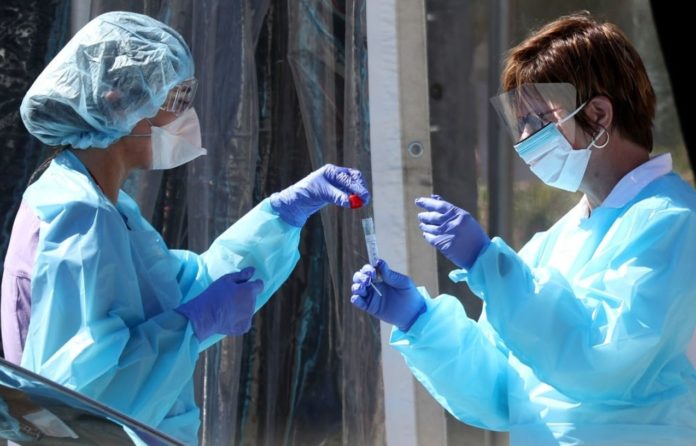As the COVID-19 pandemic developed, news SARS-CoV-2 virus variants appeared that were more infectious than the original type.
Coronaviruses get their name from the spikes on their surface that resemble a crown, the Latin term for which is corona. These spikes are used by the virus to connect to and enter cells, where it then replicates.
The Alpha, Beta, and Gamma variants all contain mutations in a protein on the virus’s surface that is required for the virus to connect to and infect cells.
A blood marker that can predict the risk of severe peripheral artery disease
Spike is a protein that performs its function by binding to ACE2, a protein found on the surface of human cells. Spike mutations are discovered in the area where it interacts with ACE2.
The connection between these two proteins appears to be critical for SARS-CoV-2 behaviour, but the effect of individual Spike mutations is unknown.
Additionally, some individuals have alternative variations of ACE2 with mutations in the area that interacts with Spike, but it is unknown whether these individuals’ risk of getting COVID-19 is affected.
An antiviral pill that cuts the risk of hospitalization or death from Covid by half – trials show
To address these problems, the study quantified the precise effect of Spike and ACE2 mutations on the strength of the two proteins’ connection. Three of the five most frequently occurring Spike mutations in the Alpha, Beta, and Gamma SARS-CoV-2 variants were found to enhance binding to ACE2.
The two binding-weakening mutations were discovered only in conjunction with other binding-stimulating alterations. As a result, the Spike proteins in all three of these SARS-CoV-2 variants have a stronger binding affinity for ACE2 than the original form.
Additionally, the research demonstrated that two common variations of ACE2 enhanced the binding strength to Spike. Notably, one of these ACE2 variants reversed the effect of a specific SARS-CoV-2 mutation, implying that carriers might be immune to SARS-CoV-2 variants carrying this mutation.
A new way to detect the risk of psychotic illnesses in children early
Determining the precise consequences of Spike mutations on ACE2 binding enables a better understanding of why new SARS-CoV-2 variants spread more rapidly.
This could help in identifying potentially harmful novel variations prior to their widespread spread and informing health authorities’ response.
The discovery that two common ACE2 variations had a stronger binding affinity for Spike suggests that individuals carrying these mutations may be more susceptible to SARS-CoV-2.
Even as the world heals from the pandemic, more infectious coronavirus types have developed.
This has prompted scientists all across the world to investigate these new types in order to better understand the properties that make them more contagious. This new study also found that, whereas frequent ACE2 mutations resulted in enhanced binding, this was not the case for all SARS-CoV-2 variants.
This new drug combination effectively fights against COVID infection
Professor Geoff Barton from Dundee’s School of Life Sciences, said:
“These results are a great example of how collaboration between experts in Computational Biology working with leading experimentalists can result in exciting new findings.
“The work sprang from a computational analysis carried out in our group at Dundee by Dr Stuart MacGowan on the effects of human ACE2 variants on SARS-CoV-2 binding. This helped the Oxford group to focus their complementary skills in the laboratory on the most important human and coronavirus variants.”
The findings were published today in eLife.
Image Credit: Getty
You were reading: Scientists explain why mutations in the virus cause COVID-19 to spread so rapidly
